Are you struggling with maskne? Stop your mask-related breakouts with these handy tips.
Although the pandemic has been brought under control by the arrival of Covid-19 vaccines, governments across the globe are still taking extra precautions to prevent the spread of the virus. That means it is highly unlikely we will be doing away with face masks anytime soon. And many of us
are suffering the ramifications of mask-wearing – say hello to maskne!
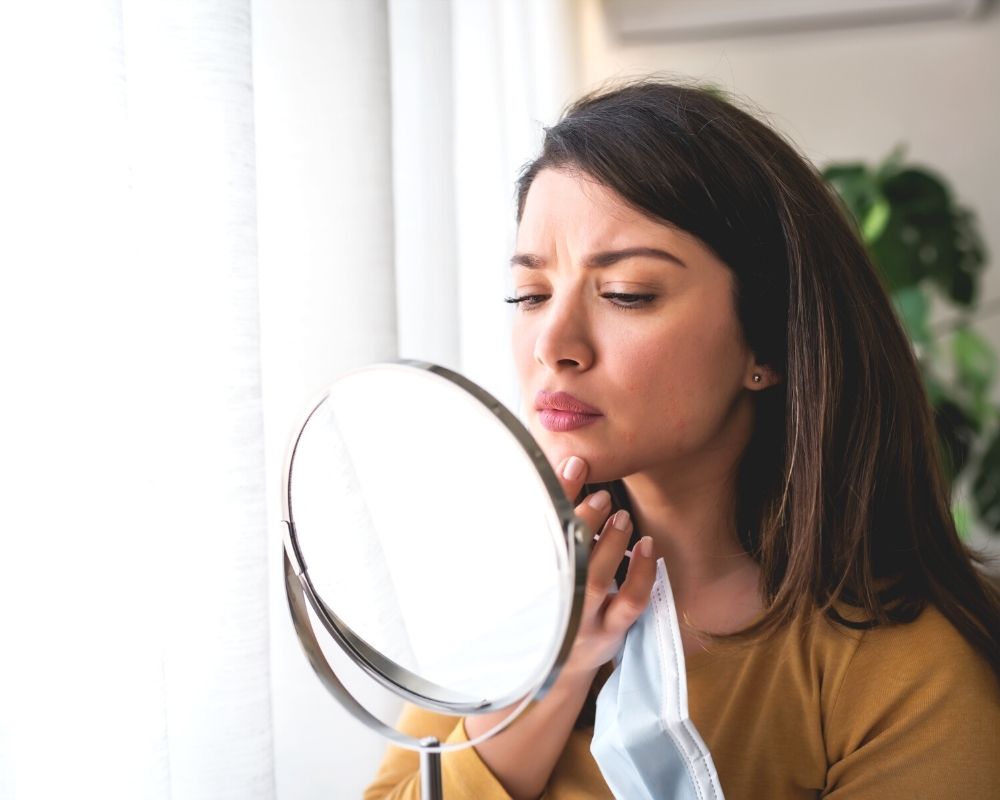
Mask acne (dubbed “maskne”) is the skin breakouts caused by long-term wearing of a mask. Wearing a mask continuously changes our skin environment. This happens more often with single-use surgical masks, such as the N95 and blue surgical face masks. These surgical masks are made from a type of plastic called polypropylene, which is similar to the material used for making plastic bags. Bacteria breeds more easily as polypropylene creates a warm and humid environment when you breathe and sweat under the mask. This environment changes the pH level of your skin and encourages bacteria to grow. Even before covid-19 struck, it was normal to have sebum, dead skin cells and dirt gather on our faces as we go about our day. But when you wear a mask, these impurities build up under the mask and further clogs up your pores, causing acne, whiteheads, and blackheads to form.
Certain skin types are more vulnerable to maskne. If you have sensitive skin, the friction of the mask against your face can aggravate the skin surface that acts as a protective barrier against external stimuli, causing it to be inflamed and more sensitive. For oily and acne-prone skin types, the combination of heat and sweat under the mask further clogs up oil glands and causes existing acne problems to worsen. In addition, mask-wearing can cause rosacea to flare up too.
Tips & Tricks to Stop Maskne
Dermatologists recommend these skin care tips to stop maskne.
Use Reusable Cotton Face Masks
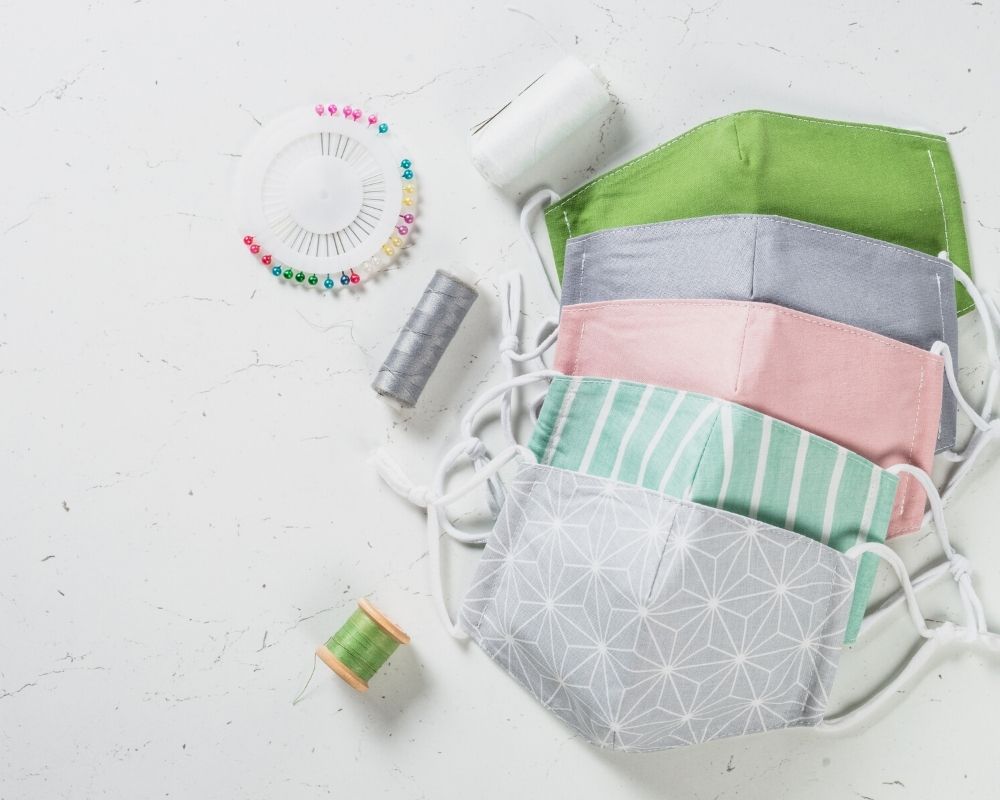
One of them is replacing single-use masks with reusable cotton face masks. Cotton masks let your skin breathe and are also less likely to chafe against your skin. The next step is to practice good mask hygiene. Don’t recycle the same mask consecutively, since it has accumulated dirt and bacteria throughout the day. It is also recommended to remove your mask every 4 hours to give your skin a break. However, you should practice social distancing before removing your face mask.
Choosing the Right Skincare Products
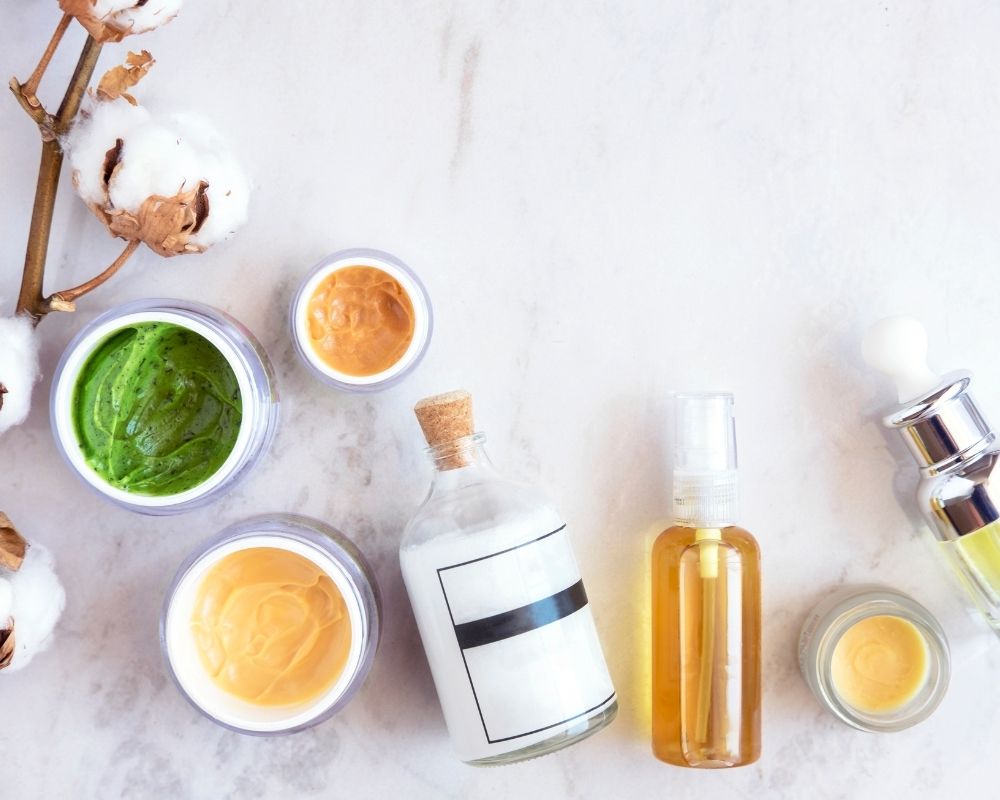
Choosing the right skincare products can be a lifesaver to your skin at this point. When it comes to skincare products, keep it simple. Products with antioxidants and anti-inflammatory ingredients should be the staple in your skincare regime as these ingredients soothes skin and reduce inflammation. Look for vitamin E, vitamin C and niacinamide.
Heavier products such as anti-aging creams and face oils should be used during night time, when your skin is able to breathe more freely. You can also switch between serums and light moisturizers during the day. Serums are non-greasy and hydrates skin from inside out. You can also try soaking cotton pads in 2% salicylic acid on acne-prone areas before wearing your mask. Salicylic acid helps keep pores open and reduce acne. In terms of skincare regime, this should be the first step before applying any moisturizer or makeup under the mask.
What to Do: Sensitive Skin
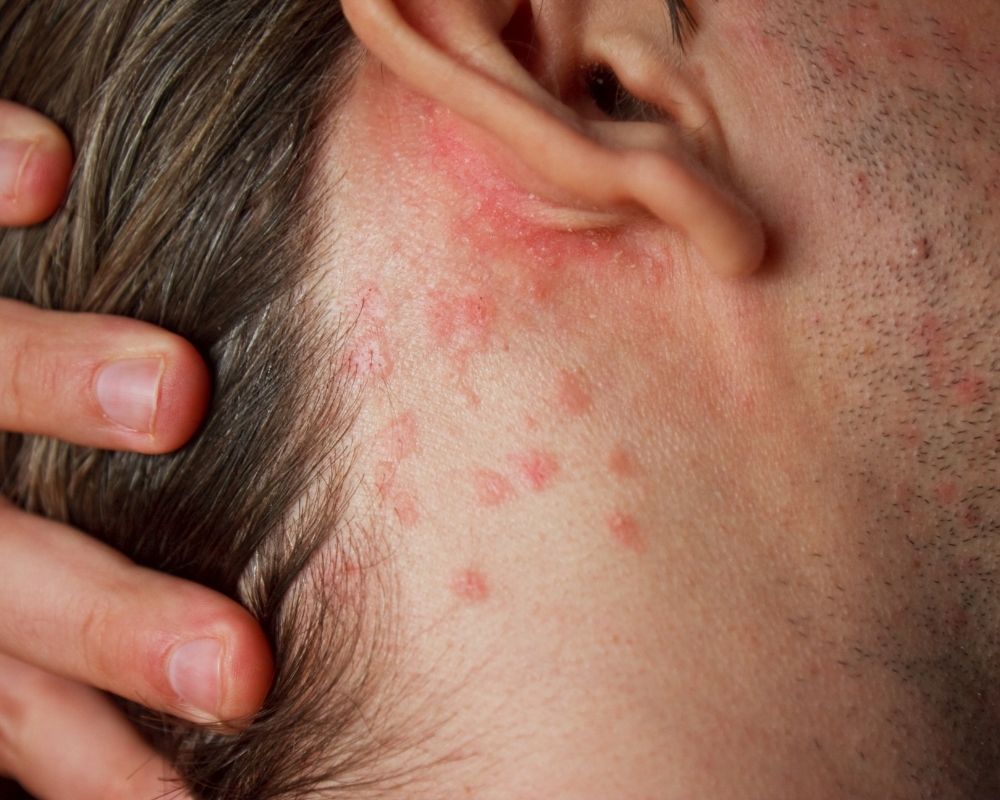
For people suffering from rosacea, irritation and rashes, you should apply a light cortisone cream on the affected areas together with a fragrance-free moisturizer that contains ceramides, squalene and glycerin. This helps your skin heal and relieve irritation at the same time.
Even if your skin is not the sensitive type, stress from the pandemic and long hours of mask wearing may cause your skin physiology to alter. It’s all part of the immune response as our body fights off external stress factors. If possible, avoid wearing heavy makeup that can clog pores such as concealers, foundations, thick serums and creams. Light mineral make-up that is non-comedogenic is fine, as it is less likely to clog pores. Better yet, take a break from makeup completely during this period of time.
Cleansing Face Twice a Day
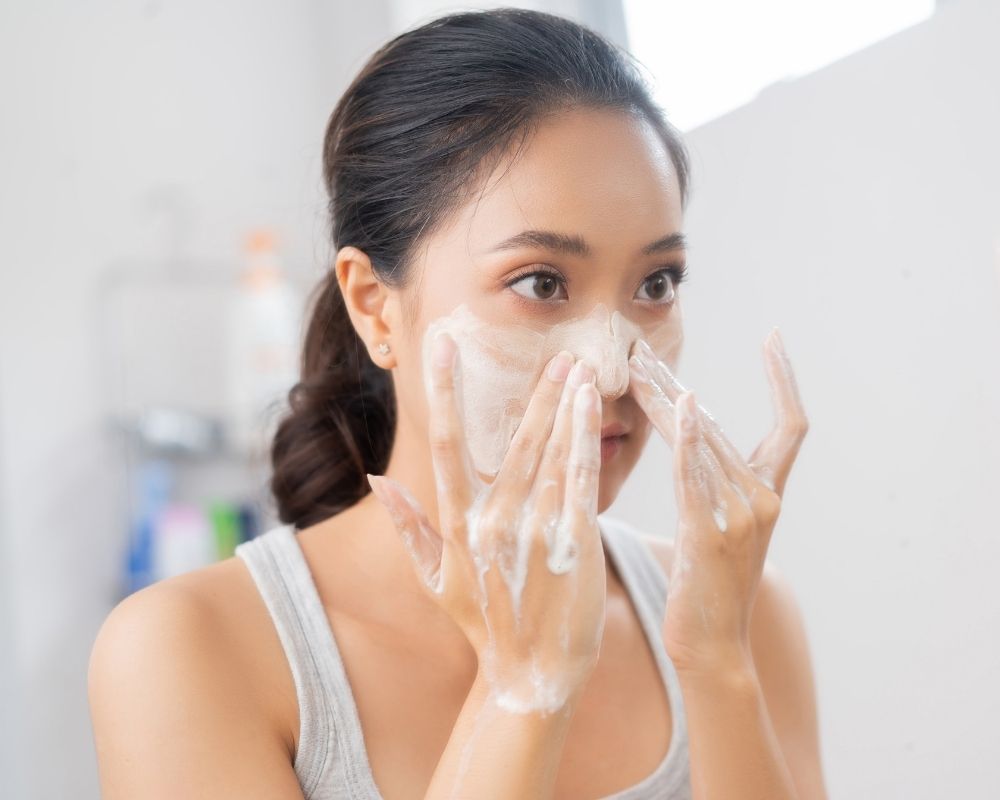
In terms of facial hygiene, you should aim to wash your face twice a day with a gentle cleanser. This is important to remove oil, sweat, dirt and prevent it from building up in your skin. If you have more severe maskne, use cleansers containing benzoyl peroxide or salicylic acid. These ingredients have antibacterial properties and are able to penetrate the skin to dissolve dead skin cells and kill acne bacteria. Salicylic acid is more effective for treating blackheads and whiteheads, while benzoyl peroxide targets acne cysts.
However do note cleansers that contain alcohol and perfume should avoided, as these ingredients will further irritate your skin. If you have oily, acne-prone skin, it may be tempting to use facial scrubs or astringents to minimize oil secretion, but frequent usage of these products can cause skin to become dry and worsen irritation.
Mask wearing will remain a public health requirement for some time to come. In the meantime, all we can do is practice good hygiene, use the right skincare products and wear the right type of masks for our skin to prevent maskne, as we look forward to a mask-free, post-pandemic future!

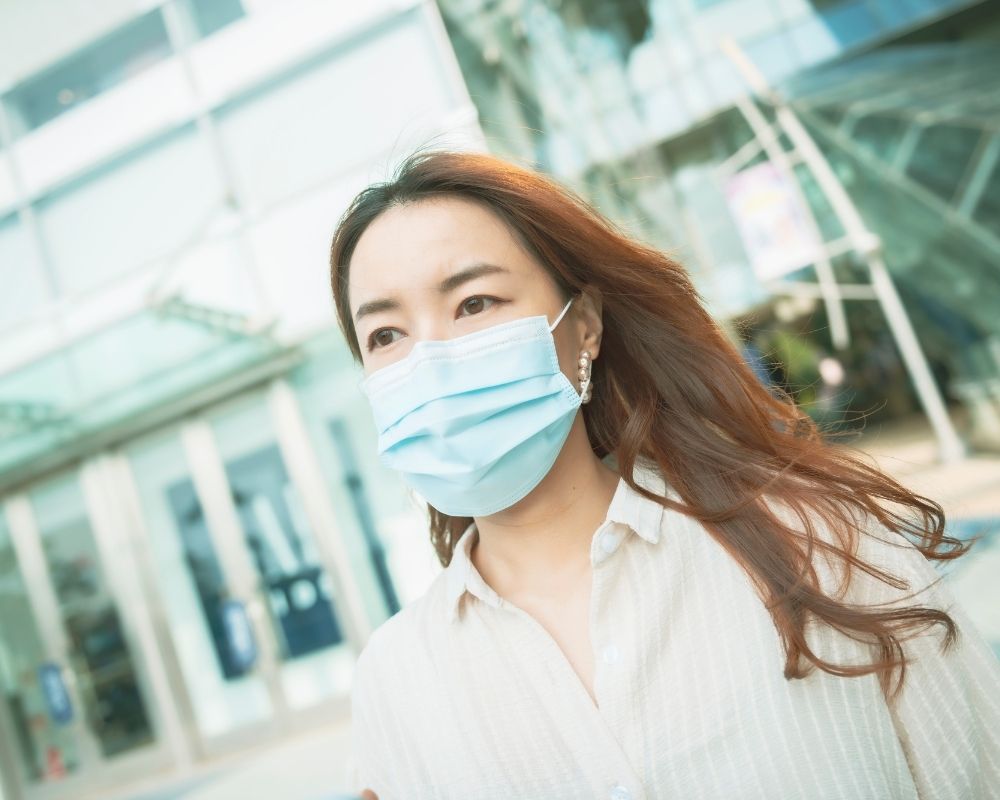
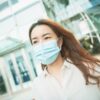
Recent Comments